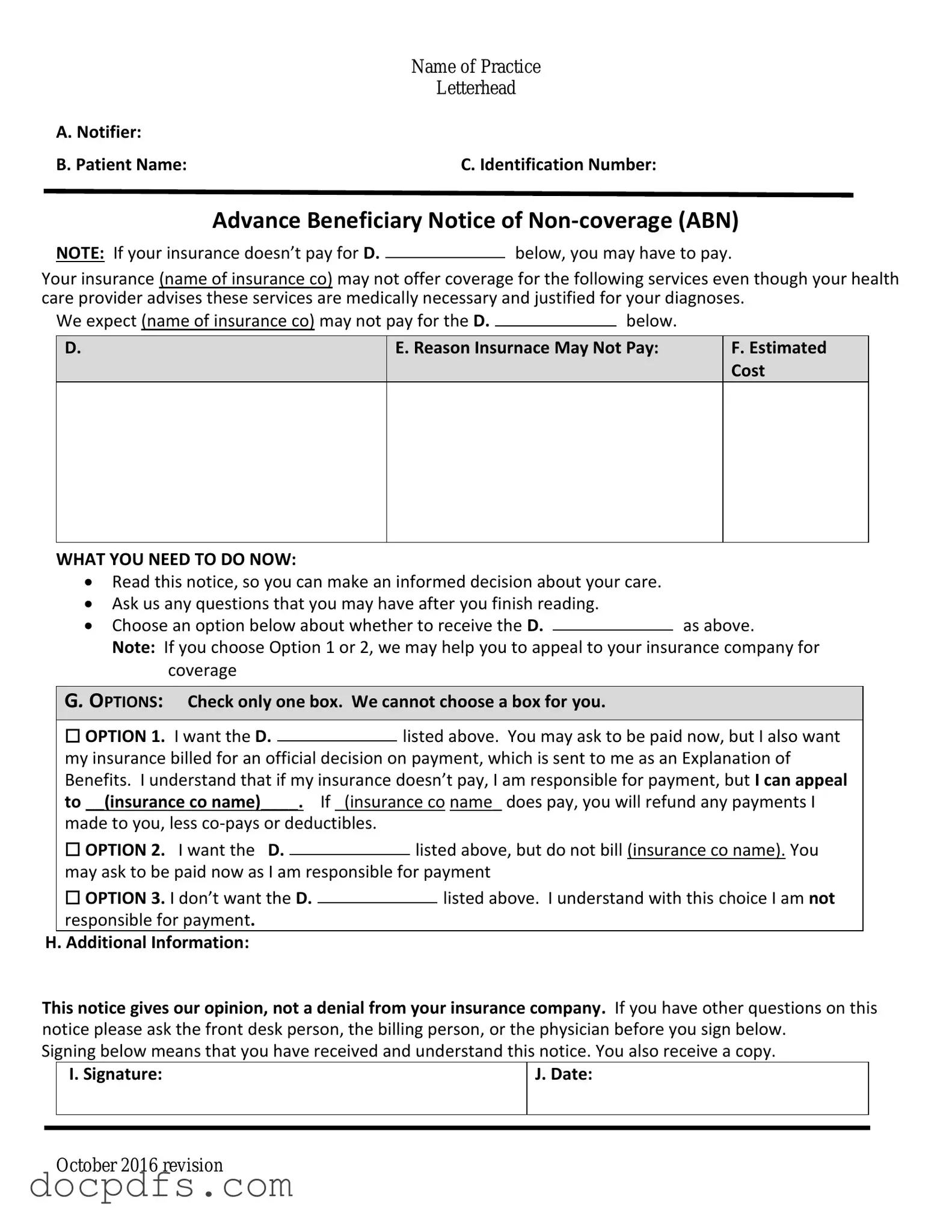Advance Beneficiary Notice of Non-coverage Template in PDF
The Advance Beneficiary Notice of Non-coverage (ABN) is a crucial document used in healthcare to inform patients that a service may not be covered by Medicare. This form empowers patients by providing them with information about their potential financial responsibility for certain services. Understanding the ABN is essential for making informed healthcare decisions and avoiding unexpected costs.
Open Advance Beneficiary Notice of Non-coverage Editor Now

Advance Beneficiary Notice of Non-coverage Template in PDF
Open Advance Beneficiary Notice of Non-coverage Editor Now

Open Advance Beneficiary Notice of Non-coverage Editor Now
or
⇓ Advance Beneficiary Notice of Non-coverage
Finish this form the fast way
Complete Advance Beneficiary Notice of Non-coverage online with a smooth editing experience.